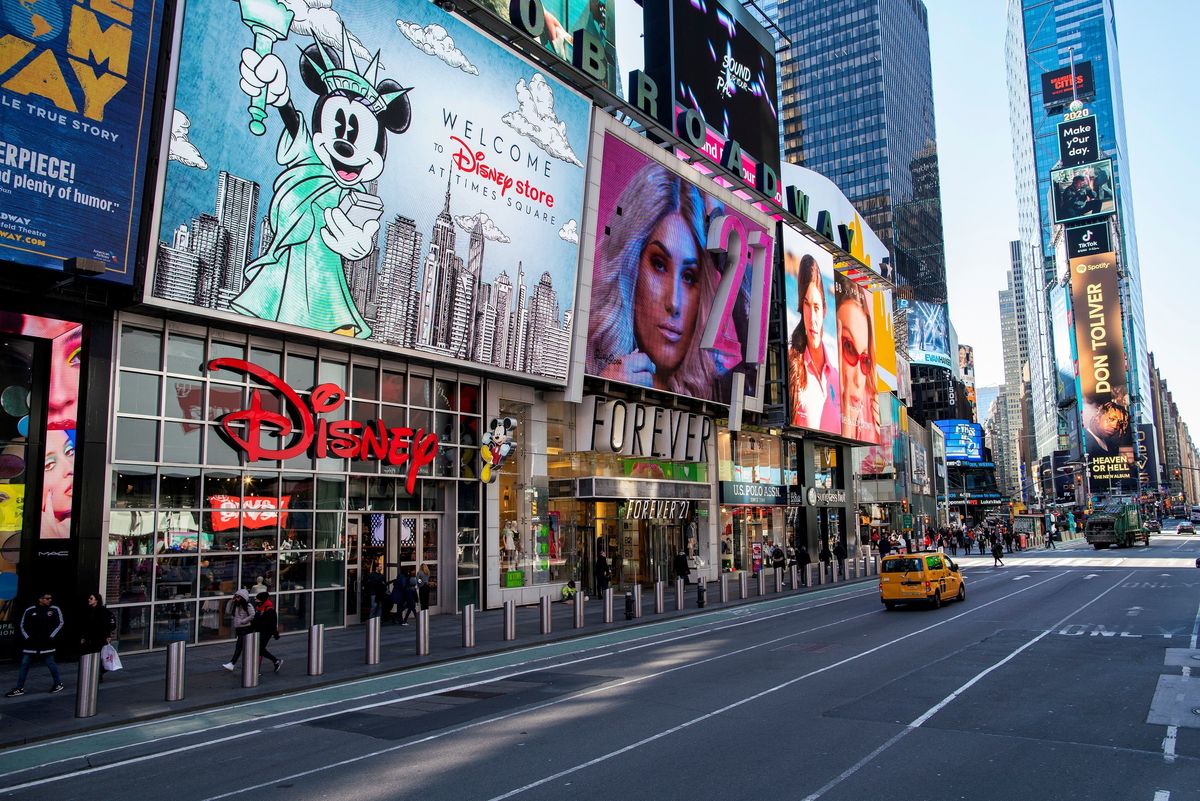The city that never sleeps is now being forced into naptime. On Sunday evening, New York City Mayor Bill De Blasio announced that, in order to slow the spread of the coronavirus, the city's public school system will close for at least a month, and that all restaurants and bars are limited to take-out and delivery service. For days, the mayor faced pressure for decisive action, but given the size of the city's economy and the serious problems these restrictions create for low-income New Yorkers, these weren't easy decisions.
Let's say you had to make the choice yourself, here are some arguments for and against draconian restrictions.
Keep calm and carry on: You're responsible for a $1.5 trillion economy, so shutting things down carries a huge economic cost. A lot of that cost will fall on the most vulnerable people: more than 100,000 kids in your public-school system are homeless or depend on school for daytime meals. Many working parents don't have ready options for child-care, and if they stay home to care for their kids, they don't get paid. Some of those people are healthcare workers badly needed on the job. Add that the Center for Disease Control (CDC) doesn't believe short-term school closures help much to contain the viral spread anyway.
Meanwhile, kneecapping the restaurant industry – which employs almost a million workers and generates $50 billion a year – will affect huge numbers of people. Yes, you need to keep the virus in check, but plunging hundreds of thousands of people into economic uncertainty, or even poverty, might have broader ripple effects that you have to account for. These are people who already struggle to pay for medical care for themselves and their families.
Shut it down: Most projections suggest that without serious action to stem the spread of coronavirus, your hospitals will soon be overrun with more serious cases than can be treated. Look at what's happened in Italy, where the surge of patients has forced doctors to choose whom to save and whom to let die. Overloading the health system not only makes it harder to treat coronavirus cases, it also cripples a hospital's ability to treat other people in need of urgent medical care.
You have already prohibited gatherings of more than 250 people, but your (and the CDC's) recommendations on "social distancing" went alarmingly ignored over the weekend. By shutting things down now, you're avoiding a much deadlier situation later. By working with the school system, you can make arrangements for food and care. It's not going to be pretty, but pandemic responses aren't a beauty contest.
So, like Black Sheep says, the choice is yours: what would you do?


















